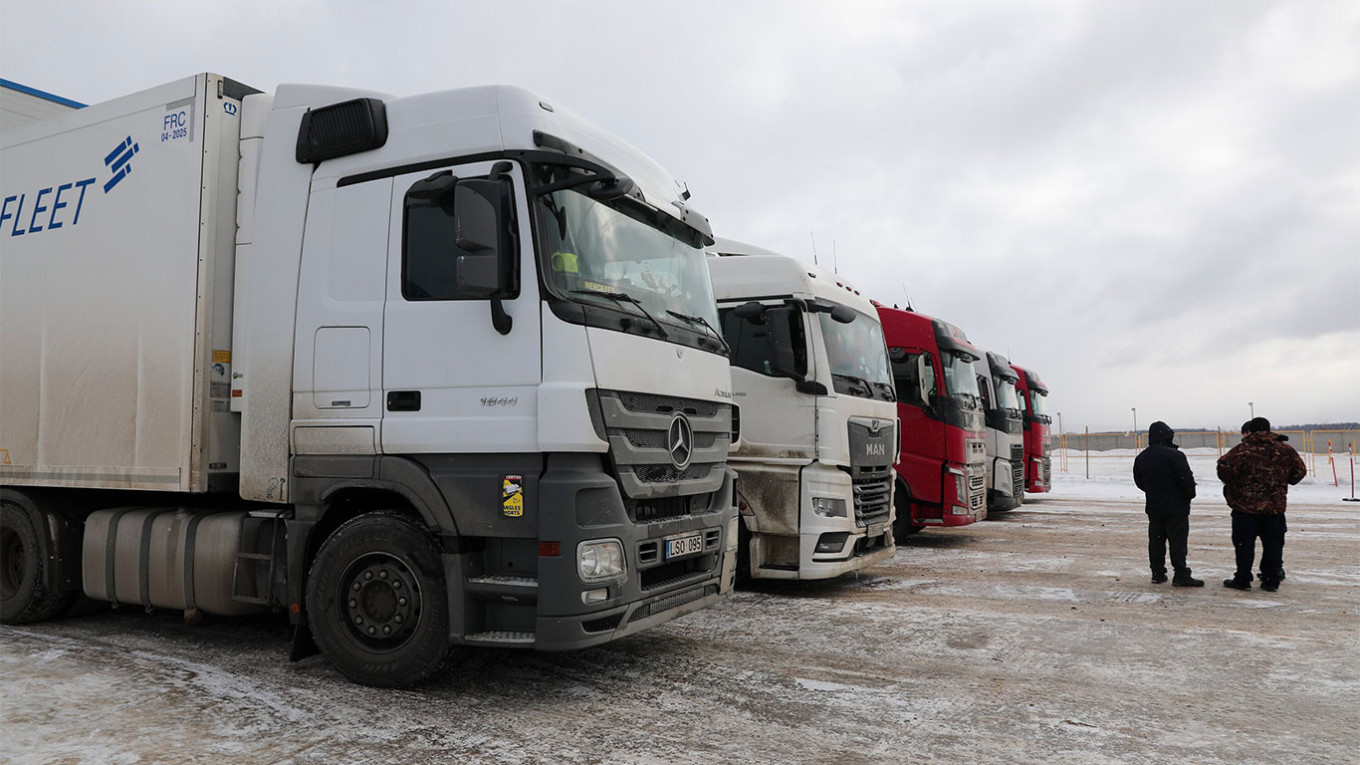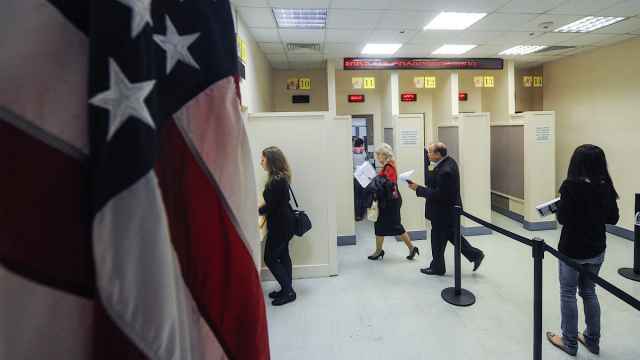In a fresh attempt to avoid punishment for aiding Russia in bypassing Western sanctions, Kazakhstan will launch an online system to track all goods entering and leaving the country next month.
The system, which a senior official told Eurasianet is due to come into effect on April 1, appears to be Kazkhstan's most concerted effort so far to show compliance with Western attempts to isolate Russia’s economy in response to the ongoing invasion of Ukraine.
“Our government has repeatedly and very clearly stated that Kazakhstan does not apply any sanctions and restrictions in trade with Russia. However, it will not allow the circumvention of Western sanctions and will not become a platform for such circumvention,” the official said, speaking on condition of anonymity. “We understand all the risks of secondary sanctions, so we closely monitor our mutual trade with all partners.”
Those remarks accurately convey the complexity of the challenge facing Kazakhstan, which wants to avoid angering its belligerent and economically important neighbor to the north, while continuing to cultivate friendly relations with Europe and the United States.
Foreign Minister Mukhtar Tleuberdi made no secret of those anxieties in his remarks alongside U.S. Secretary of State Antony Blinken, who visited the capital Astana last month.
“Kazakhstan has very historic ties with both Russia and Ukraine,” Tleuberdi said, speaking in English. “Our economies are interconnected for a long, long time, and that’s why definitely all this situation is quite heavy for us, for our economy, and we [are] trying to avoid any negative effects from the sanctions.”
The main obstacles to sanctions compliance are geography and the current trading regime under which Kazakhstan operates.
Kazakhstan and Russia are both members of the five-nation Eurasian Economic Union (EAEU). In theory, that means there are no customs checks on goods crossing the 7,600-kilometer border between the two countries.
In recent years, this setup has helped Russia strengthen its position as Kazakhstan’s primary trading partner. So it was hardly any surprise that when the flow of Western goods to Russia was cut off, Moscow looked to its neighbors in Central Asia and the Caucasus as a backdoor.
“Information collected by the Geneva-based Trade Data Monitor indicates that some sanctioned goods — particularly advanced semiconductors — are being diverted to Russia via third countries, many of which abruptly changed their trading habits following Russia’s invasion,” Bloomberg reported earlier this month.
The figures speak for themselves. In the calendar year before the war began, Kazakhstan exported a paltry $12,000 worth of advanced semiconductors to Russia. In 2022, that amount skyrocketed to $3.7 million.
Other figures are more difficult to pin down. Anecdotal evidence suggests a growing shuttle-trading industry has emerged to fill the demand for high-tech consumer goods and other sought-after items.
Recently published research from the European Bank for Reconstruction and Development (EBRD) also “provides evidence suggestive of intermediated trade via [Russia’s] neighboring economies being used to circumvent the sanctions.”
“We saw the emergence of intermediated trade — an increase in Western exports to Central Asian and the Caucasus countries accompanied by an increase in exports from these countries to Russia,” explained EBRD chief economist Beata Javorcik.
The patterns of falling exports from the EU to Russia and rising exports to Central Asia and the Caucasus “are particularly pronounced for product groups partially or fully subject to the EU sanctions as well as goods that are similar to the sanctioned ones,” the EBRD report said.
After the introduction of sanctions, EU exports of sanctioned goods to EAEU members Kazakhstan, Kyrgyzstan, and Armenia rose by an extra 30% compared to exports of other goods, the authors concluded, after studying data from January 2017 to August 2022.
It is not only Russia’s direct trading partners that need to be vigilant in helping stem the flow, according to Western officials engineering the sanctions regime.
After all, countries helping Russia meet its demands for semiconductors and similar high-tech goods are rarely the ones producing these components.
U.S. Treasury sanctions compliance advice makes it clear that Western exporters are responsible for ensuring that sanctioned goods do not reach Russia via third countries.
A report by Reuters from earlier this month illustrated how this parallel flow works in practice. Citing seven anonymous sources familiar with the situation, the news agency wrote of how “Russian companies have flooded their Kazakh partners … with new requests to help them … import badly needed goods.”
“Russians have a very long shopping list which includes industrial equipment, railway bearings, advanced electronics, radio equipment, turbines, airplane parts, raw materials, and even bank card materials,” Reuters said in its report, citing the testimony of its sources.
This boom in business is clearly evidenced by Kazakh official data showing how exports to Russia rose by 25% last year.
To ensure no inadvertent sanctions-busting is happening, Kazakhstan and the U.S. government have been liaising, as Tleuberdi noted during Blinken’s visit. Astana is grateful that the Americans “inform us in advance of possible cases over which secondary sanctions could be applied,” the Kazakh foreign minister told reporters.
And while Kazakhstan has incurred no secondary sanctions, Washington has slapped them on an Uzbek company over supplies of microcircuits to Russia.
Officials in Astana are urging businesses to be wary of the risks of trading with Russia in the current climate. The Kazakh official who spoke to Eurasianet said the government “is constantly working to reduce the risks of re-export” and has set up an online database informing companies about sanctions. The import-export monitoring system coming online next month is another step in those efforts.
“Suspicious trade operations are subjected to a thorough analysis and, if necessary, administrative measures are taken,” the official said.
A Message from The Moscow Times:
Dear readers,
We are facing unprecedented challenges. Russia's Prosecutor General's Office has designated The Moscow Times as an "undesirable" organization, criminalizing our work and putting our staff at risk of prosecution. This follows our earlier unjust labeling as a "foreign agent."
These actions are direct attempts to silence independent journalism in Russia. The authorities claim our work "discredits the decisions of the Russian leadership." We see things differently: we strive to provide accurate, unbiased reporting on Russia.
We, the journalists of The Moscow Times, refuse to be silenced. But to continue our work, we need your help.
Your support, no matter how small, makes a world of difference. If you can, please support us monthly starting from just $2. It's quick to set up, and every contribution makes a significant impact.
By supporting The Moscow Times, you're defending open, independent journalism in the face of repression. Thank you for standing with us.
Remind me later.






